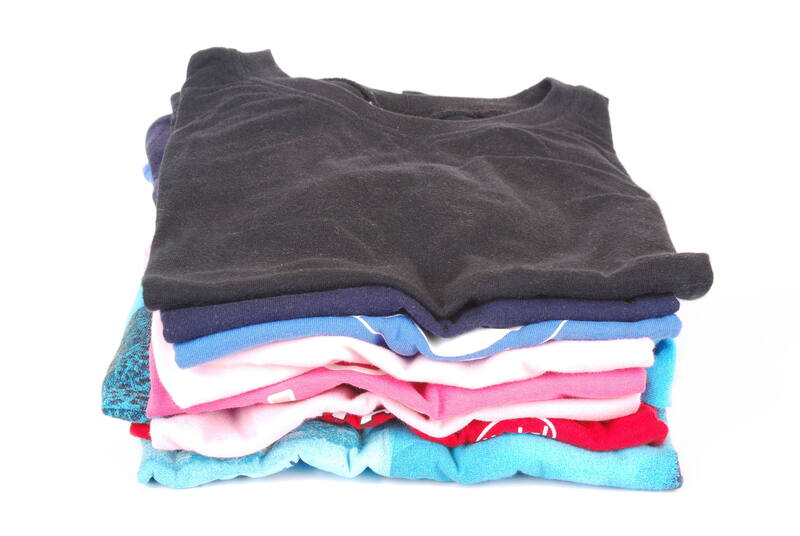Transform Your Recycling Habits at Home with Top Strategies
In today's eco-conscious world, recycling at home is more than just separating plastics and papers. It's about adopting sustainable behaviors that minimize waste and environmental impact. Whether you're a beginner or looking to optimize your current system, implementing innovative ways to boost recycling habits at home can make a significant difference.
Why Changing Your Recycling Habits Matters
The average household produces a considerable amount of waste daily. Transforming your recycling habits not only conserves resources but also supports a healthy planet. When you actively improve your recycling methods at home, you reduce landfill waste, lower energy use, and contribute to a cleaner environment for future generations.
- Reduces Greenhouse Gas Emissions: Recycling materials like aluminum, plastic, and glass consumes less energy than producing new products, directly lowering emissions.
- Conserves Natural Resources: By recycling paper, metals, and glass, you reduce the need for raw material extraction.
- Saves Money: Reducing waste through recycling can cut down garbage collection costs and occasionally earn you rewards.

Understanding the Basics of Home Recycling
Before you can transform your recycling routine at home, it's important to understand the essentials. Each region or city often has specific rules for what can and cannot be recycled, so familiarizing yourself with local recycling guidelines is the first step.
What Can Be Recycled?
- Papers and Cardboards: Newspapers, magazines, empty cereal boxes, and office paper.
- Plastics: Bottles, containers, and packaging with appropriate recycling codes (usually #1 and #2 are widely accepted).
- Metals: Aluminum cans, tins, and some kitchen utensils.
- Glass: Bottles and jars (ensure they're clean and free from food residue).
Tip: Avoid common contaminants like greasy pizza boxes, certain plastics (like bags and wrappers), electronics, and hazardous materials, unless your area's recycling program accepts them.
Top Strategies to Transform Recycling Habits at Home
Ready to make a change? Here are the most effective, practical, and easy-to-implement recycling strategies for households:
1. Make Recycling Convenient and Visible
Place recycling bins in convenient, high-traffic areas of your home such as the kitchen, bathroom, and garage. When bins are easily accessible and clearly labeled, family members are more likely to use them properly. The more visible the recycling area, the more likely you'll stick to your recycling habits at home.
- Label bins for each material type: paper, plastic, metal, and glass.
- Keep a small compost bin in the kitchen for food scraps.
- Choose bins with lids to contain odors and keep pests away.
2. Educate Yourself and Your Household
Empower everyone in your household by sharing the benefits of recycling at home and the guidelines for your area. Hold a recycling "orientation" for children and housemates, teaching them how to rinse containers, identify recyclable items, and understand local policies.
- Display a recycling infographic or chart near your bins.
- Make learning fun with recycling games or challenges.
3. Reduce and Reuse Before Recycling
The most effective waste management strategy is to produce less waste in the first place. _Reduce_ what you purchase, _reuse_ materials, and recycle only what cannot be avoided.
- Switch to reusable shopping bags, water bottles, and food containers.
- Repair or donate items rather than throwing them away.
- Opt for products with minimal or recyclable packaging.
4. Properly Clean and Sort Recyclables
One of the biggest obstacles to effective household recycling is contamination. Always rinse food and beverage containers to remove residue, and let them dry before tossing them into the bin. Mixed or dirty recyclables often end up in the landfill.
- Rinse bottles, cans, and jars.
- Flatten cardboard boxes for easier storage and transport.
- Remove caps and lids if your local center requires it.
5. Stay Updated on Local Recycling Guidelines
Many cities and towns update their recycling guidelines frequently. Stay informed by checking your municipality's website or social media channels. Sign up for notifications about recycling changes, or contact your local recycling center for clarification about unusual items.
6. Compost Food and Yard Waste
Transform kitchen scraps and garden trimmings into nutrient-rich compost instead of sending them to the landfill. Composting reduces your total household waste and provides free soil for gardens, which closes the loop on sustainability.
- Start a backyard compost bin or use a countertop composter for apartments.
- Add vegetable peels, eggshells, coffee grounds, and yard waste.
- Avoid composting meat, dairy, and oily foods unless using a specialized system.
7. Dispose of Electronics and Hazardous Waste Responsibly
Electronics, batteries, light bulbs, and chemicals require special handling. Contact local drop-off spots or participate in community collection events to dispose of these safely and legally. Never toss these items with regular recyclables, as they can contaminate the waste stream and harm the environment.
8. Buy Recycled Products
Support the full recycling cycle by purchasing items made from recycled materials. Look for labels such as "post-consumer content" or "contains recycled materials" when shopping for paper goods, packaging, and even furniture.
- Prioritize products with eco-friendly certifications.
- Encourage local businesses and friends to offer and buy recycled goods.
9. Set Goals and Track Progress
Motivation is easier to maintain when you track your impact. Set specific, measurable goals such as reducing landfill waste by 25% in six months, or recycling a set amount of plastic monthly. Keep a recycling log or use smartphone apps to monitor your progress.
Creative Ways to Take Your Home Recycling to the Next Level
Once you've mastered the basics, don't stop there! Consider these advanced tactics to further enhance your residential recycling habits and inspire others:
- Host neighborhood recycling drives for hard-to-recycle materials like batteries and electronics.
- Start a community sharing group for unused items, reducing waste through sharing instead of discarding.
- DIY upcycle projects: Transform glass jars into storage, or turn cardboard into creative crafts.
- Organize or join advocacy campaigns to promote better recycling policies locally.
Common Recycling Myths--Debunked!
Even the most eco-aware families may fall for these widespread recycling misunderstandings. Clearing up misconceptions ensures you maximize your recycling impact at home.
- Myth: All plastics are recyclable.
Fact: Only certain types of plastic (typically #1 PETE and #2 HDPE) are accepted by most recycling programs. Always check local guidelines. - Myth: Items need to be spotless to be recycled.
Fact: Lightly rinsed is fine--just remove major residues that could contaminate the stream. - Myth: Recycling uses more energy than it saves.
Fact: Recycling usually consumes much less energy than making products from raw materials. - Myth: If it's in the bin, it's definitely recycled.
Fact: Contaminated or inappropriate materials may end up in the landfill even if placed in recycling bins.
Encourage Family and Community Involvement
Changing your recycling habits at home becomes easier and more enjoyable when everyone is involved. Encourage children, roommates, or neighbors to develop eco-conscious behaviors and celebrate shared milestones.
- Assign weekly "recycling champions" who check sorting accuracy and offer reminders.
- Organize monthly waste-reduction contests.
- Share your progress on social media to inspire friends and family.

Embracing Digital Tools for Smarter Home Recycling
A range of apps and websites can help you improve recycling practices at home. These resources offer sorting guides, pick-up schedules, and even eco-friendly product suggestions.
- Download local recycling apps for updates and tips.
- Use bar code scanners to check the recyclability of products.
- Access digital eco-communities for support and advice.
Conclusion: Start Transforming Your Home Recycling Habits Today!
Adopting simple yet effective strategies for recycling at home is the key to reducing waste and protecting the planet. Whether you're new to recycling or an experienced eco-warrior, continued dedication and education are essential.
Make recycling a rewarding household habit--experiment with new techniques, stay informed, and involve everyone in your journey. Every aluminum can, glass jar, or cardboard box you recycle is a step closer to a cleaner, greener future. Start transforming your home recycling habits today and be part of the solution!